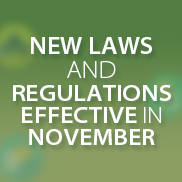Annual Report on Promoting the Rule of Law in China(2016)
II. Administration by Law
China continued to make large efforts to exercise administration by law, conscientiously implemented the Implementation Programme for the Construction of Law-based Government (2015-2020), and obtained new achievements in the construction of the law-based government in 2016.
(1)The Legislative Work of the State Council
The State Council submitted thirteen law bills and two resolution drafts to the NPC Standing Committee, requested the NPC Standing Committee to review ten treaties and conventions, formulated and revised eight administrative regulations, and ratified eleven conventions, agreements and protocols.
——Promulgating the Decision of the State Council on Revising Part of the Administrative Regulations. In order to promote the reform of streamlining administration, delegating more powers, improving regulation, and providing better services, the State Council cleaned up the administrative regulations related to the cancellation and adjustment of examination and approval items, the price reform and the universal measures taken to reduce fees, and issued the Decision of the State Council on Revising Part of the Administrative Regulations in February and revised part of the articles and paragraphs of 66 administrative statutes. The State Council cancelled a total of 165 examination and approval matters that the State Council departments and the local government departments they had designated to handle, cleaned up and standardized the examination and approval matters for 192 intermediary services, and the acceptance of 220 professional qualifications.
——Formulating the National Regulations on Social Security Funds. In order to standardize the management and operation of the social security funds throughout the country and strengthen supervision over the social security funds throughout the country to preserve and increase the value of the funds on the premise of guaranteeing their safety, the State Council adopted the National Regulations on Social Security Funds in February, and it became effective as from May 1, 2016. The Regulations make clear that the national social security fund is the national social security reserve fund. It is composed of allocations from the central budget, transfers from state-owned capital, profits from the fund investments and funds raised in other forms approved by the State Council, and is used to supplement or regulate the expenditures for social security at the peak of the aging population. It prescribes explicit provisions on the raising, use, management and operation of the fund and supervision over it.
——Formulating the Regulations on Farm Irrigation and Water Conservancy. In order to accelerate the development of farm irrigation and water conservancy facilities and increase the overall agricultural producing capacity to guarantee the security of the national food grain supply, the State Council adopted the Regulations on Farm Irrigation and Water Conservancy in April, and the Regulations became effective on July 1. The regulations established the principles that should be upheld for the development of the farm irrigation and water conservancy work, prescribed the procedure for the preparation of the plan for irrigation and water conservancy, enacted the corresponding measures for strengthening the construction of the irrigation and water conservancy projects, the operation and maintenance of the projects, the management for farmland irrigation and drainage and absorbing social forces to participate in the construction of farm irrigation and water conservancy projects, and clarified the legal responsibilities of behavior subject for the violation of the regulations.
——Formulating the Regulations on the Administration of Approval and Record for Enterprise Investment Projects. In order to standardize the government behavior of approval and record for enterprise investment projects, accelerate the transfer of the government function of investment management and guarantee the power of the enterprises to make decisions on investment, the State Council issued the Regulations on the Administration of Approval and Record for Enterprise Investment Projects in December, and it took effect as from February 1, 2017. The regulations are the first administrative statue China issued in the field of fixed assets investment. Its main contents are: one, it standardizes the behavior of approval for projects; two, it standardizes the behavior of submitting files for record; three, it strengthens operational and post-operational oversight; four, it provides better services and five, it ascertains responsibilities strictly.
——Revising the Regulations on the Circulation and Preventive Inoculation of Vaccines. Since the regulations became effective in June, 2005, it played an important role in strengthening the management of the circulation and inoculation of vaccines, preventing and controlling the occurrence and prevalence of infectious diseases and protecting the personal health and public health. The State Council revised the regulations in April. Its main changes are: One, it improves the legal system for the sales channel, cold chain storage and transportation of second vaccines; two, it establishes the legal system for the thorough retrospective legal system for vaccines, and three, it increases punishment and accountability for criminal behaviors and ineffective supervision in the circulation and preventive inoculation of vaccines.
——Revising the Customs Inspection Regulations of the People’s Republic of China. In order to meet the requirement for the facilitation of customs clearance for foreign trade at ports, the State Council revised the Customs Inspection Regulations of the People’s Republic of China in June. One, it adds the basic measures to support customs clearance, two, it further standardizes and optimizes the customs clearance procedure, three, it improves the power and measures for customs clearance, and four, it clarifies the principles for the implementation of the policy of combining leniency with severity in incurring punishments for the violations of laws.
——Revising the Regulations of the People’s Republic of China on the Management of Radio Operation. Since it became effective in September 1993, the Regulations of the People’s Republic of China on the Management of Radio Operation played a positive role in guaranteeing the rational development and utilization of the radio frequency and safeguarding the radio wave order. With the deepening of the reform and the widespread application of the radio technology in all spheres of the social life, the State Council and the Central Military Commission revised the regulations in November to meet the actual need of the radio management work. The main contents of the revised regulations are: One, it covers the management of radio frequencies, the management of radio stations and bases, the management of transmission equipment and the foreign-related radio management. Two, it improves the management system for the effectively development and utilization of the radio frequencies. Three, it reduces and standardizes the administrative examination and approvals for radio. Four, it strengthens the operational and post-operational oversight, and increases punishment for the criminal activities of using “pseudo base stations” for telecommunication frauds.
(2) Administration by Law
——Administrative reconsideration. The State Council received a total of 7,491 applications for administrative reconsideration (including 2,702 applications carried over from the previous year), and concluded 2,409 of them. It filed for the examination of 1,495 applications including cases carried over from the previous year), and concluded 373 of them. It continued to push forward the work of promoting the reform of the administrative reconsideration system and the revision of the Administrative Reconsideration Law, and guided and supervised the administrative reconsideration work throughout the country, put forward the explicit requirement for the improvement of the work of filing cases for administrative reconsideration at the original level, and developed the statistics system for administrative reconsideration and administrative response cases throughout the country.
——Filing regulations and rules for the record. A total of 891 local regulations, autonomous regulations and single regulations were submitted to the State Council for the record by local people’s congresses with legislative power in 2016. The departments of the State Council and the local governments with legislative power submitted 747 rules to the State Council for the record, including 488 rules from local governments and 259 rules from State Council departments. The Office of Legislative Affairs of the State Council laid emphasis on the examination of the rules and regulations submitted by cities and autonomous prefectures with newly acquired legislative power, and made special examination of the department rules already filed for record in relation to the reform of “delegating power, improving regulation and providing better services”.
——Implementing the Implementation Programme for the Construction of A Law-based Government (2015-2020). After the programme was published, the Office of Legislative Affairs of the State Council gave positive publicity to the programme, and travelled to Jiangsu and Guangdong to urge the local governments to implement the programme and called meetings of the departments under the State Council for the same purpose.
——Construction of the arbitration system. The Office of Legislative Affairs of the State Council further improved the system of submitting statistics on the acceptance of cases by arbitration organs, established the system of submitting reports on the violation of laws and discipline in handling arbitration cases and the correction of wrong arbitral rulings by judicial organs, and improved the system of election of new leaderships of arbitration commissions and the review system. It actively coordinated relevant departments to formulate policies and measures for the development of the arbitration work. The Ministry of Justice formulated and issued the Opinions on Standardizing and Strengthening the Management of the Registration of Arbitration Organs to improve the credibility of arbitration. At the same time, it included the “formulation of and organization of the implementation of the Provisions on the Management of the Registration of Arbitration Organs” in the power and responsibility list of the Ministry of Justice, published it on the Web of the Central Institutional Organization Commission. The establishment of arbitration organs is defined as an administrative examination and approval matter exercised by provincial judicial and administrative organs.
——The reform of the relatively concentrated administrative licensing power. Since the Central Institutional Organization Commission and the Office of Legislative Affairs of the State Council jointly issued the Circular on the Distribution of the Plan for the Work of Experiment on the Relatively Concentrated Administrative Licensing Power, the country started a new round of the reform of the relatively concentrated administrative licensing power. The relevant reform in the experimental zones of Tianjin, Hebei, Shanxi, Jiangsu, Zhejiang, Guangdong, Sichuan and Guizhou was deepened on the original basis. In the current round of the reform, most of the experimental zones established independent “administrative examination and approval bureaus”, and greatly reduced the number of examination and approval matters, and cut down the number of organs and personnel for examination and approval, and improved the efficiency to a certain degree and explored to establish the list of division between power and responsibility for supervision.

